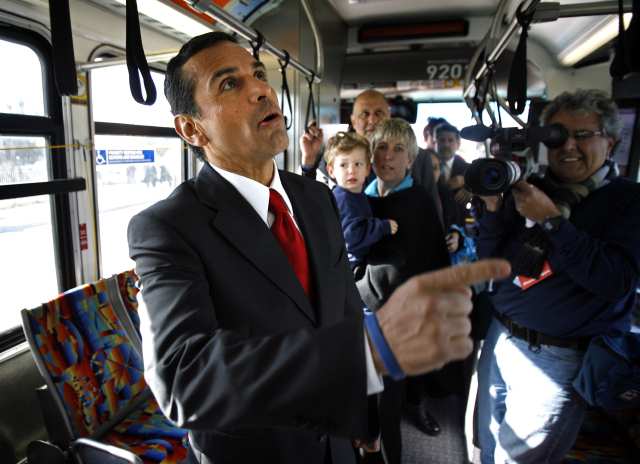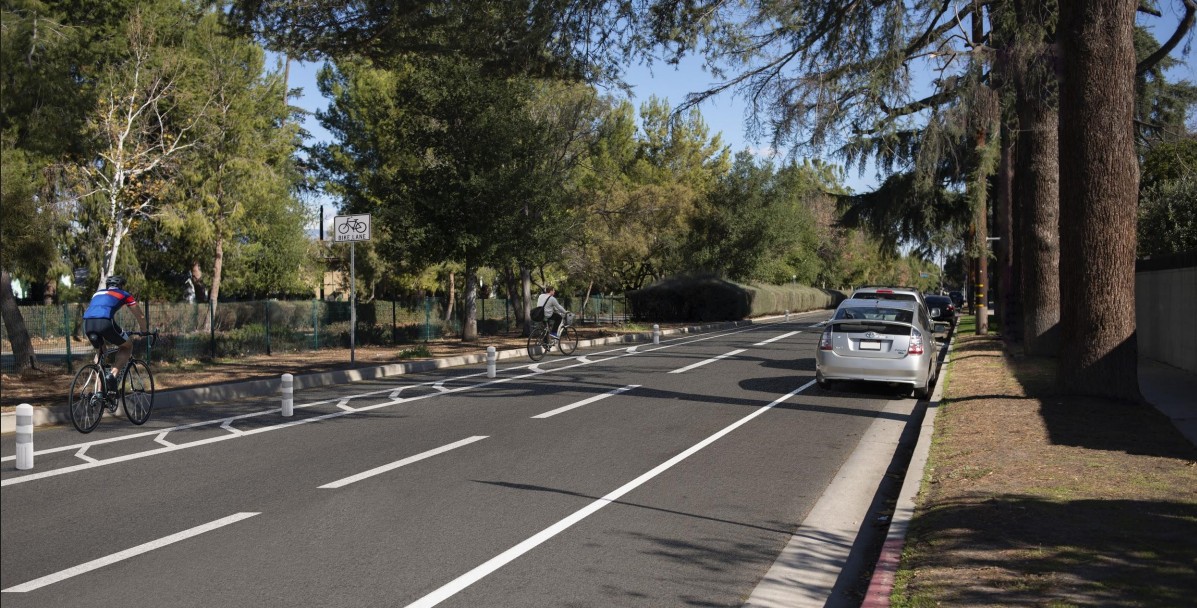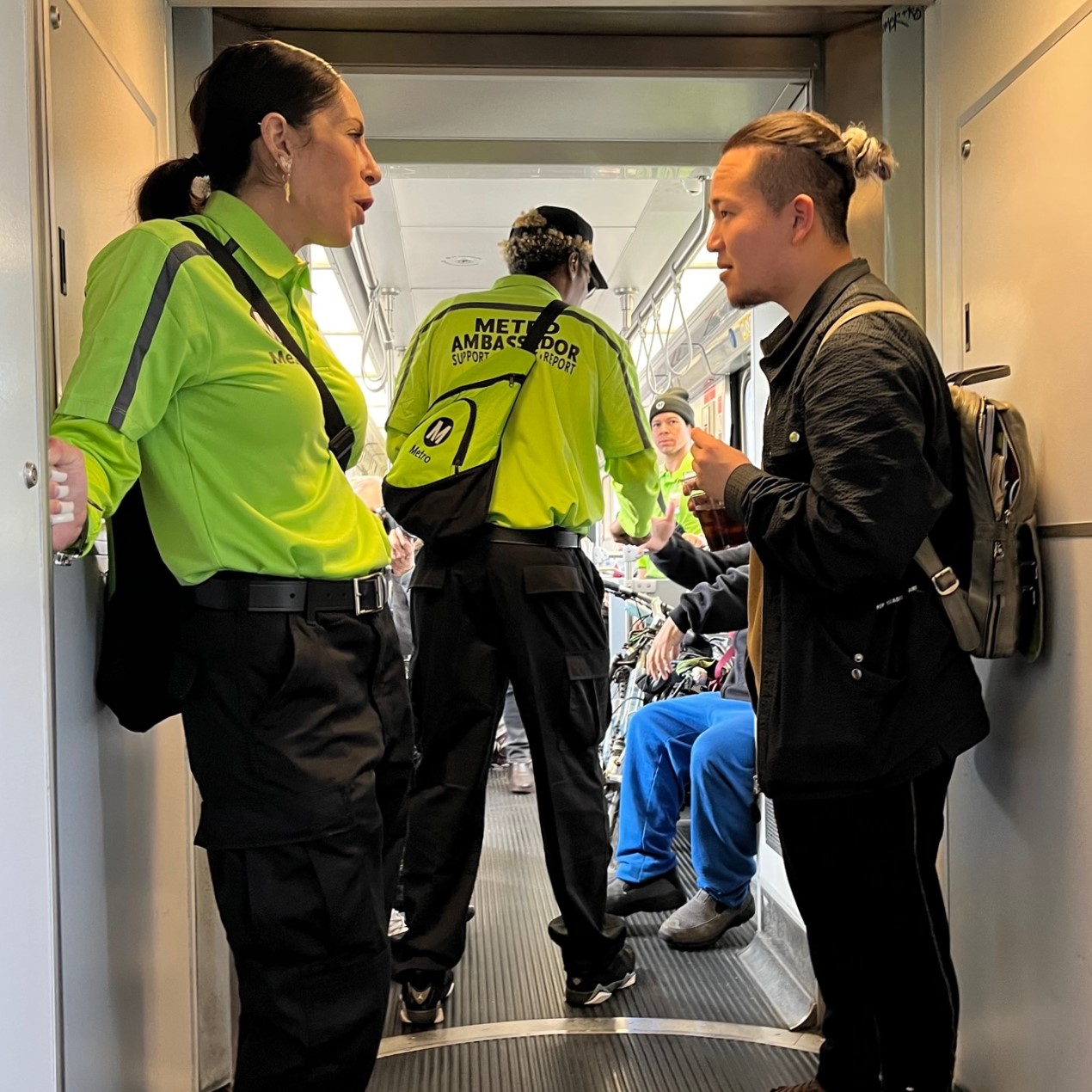This morning, Mayor Villaraigosa's last term as Chair of the Metro Board of Directors got off to an efficient and relatively controversy-free start as Supervisors passed motions on studying the impacts of Metro's bus cuts and Bus Rapid Transit expansion, a second study on the costs and benefits of a bike share program, the approval of a green construction program and even a preferred route for California High Speed Rail. The only real debate among the Board Members came when Director Diane DuBois challenged Supervisor Mark Ridley-Thomas on the definition of "local" in the local jobs program and on whether or not to give free Metro passes to uniformed Girl Scouts during the group's 100th birthday party.
Here's a quick roundup of the major happenings.
Review of bus service and Bus Rapid Transit Opportunities - Nobody can accuse Mayor Villaraigosa of thinking small. The new Board Chair introduced a motion to examine the impacts of the hundreds of thousands of hours bus service cuts that have occurred since the expiration of the Consent Decree between the agency and Bus Riders Union in 2007.
"We see this as a tremendous opportunity to reverse some of the damage that has been done in South L.A.," testified the Bus Riders Union's Sunyoung Yang.
To secure unanimous passage, Mayoral Appointee to the Board Richard Katz clarified that this motion "doesn't undo anything that this Board has already done." When questioned directly, Metro CEO Art Leahy confirmed with this interpretation.
A second part of the motion called on staff to examine the possibilities to expand the agency's Bus Rapid Transit program. Yang confirmed the BRU's support for this strategy, "We should continue building on the victories and the massive breakthrough we had on the Wilshire Bus Only Lanes."
Also testifying in favor of the motion were other BRU members, the Sierra Club Transportation Committee, and Kymberleigh Richards of the San Fernando Valley Service Council. The LA Times had more on the Mayor's bus plans in this morning's paper.
Green Construction Program - Even critics of Metro have to concede the agency has become a leader in promoting green transportation. Metro was the first big-city transit agency in the country to have an entirely natural gas bus fleet, and they're beginning to move towards a zero-emissions fleet. Today, they finalized a "green construction policy" for Metro projects.
Support for the policy was near universal with the Clean Air Coalition, NRDC, Sierra Club, Bus Riders Union, and East Yard Community Groups for Environmental Policy all voicing support. No construction or contracting groups expressed opposition. In fact, the only complaint about the program was that it doesn't apply to LADOT or Caltrans projects. The policy passed unanimously.
Basically, the new policy is just what it says it is. Metro contractors now have to use construction equipment, vehicles, and generators that meet modern clean air standards. This will improve health for residents and construction crews by requiring equipment that emits significantly less air pollution than older models. Contractors can meet either retrofit old equipment or purchase new equipment. The NRDC Switchboard has more details on the program.
Bikes and light rail and high speed rail, all after the jump.
Crenshaw Light Rail - This month's installment of the battle over the Crenshaw Light Rail was the simple acceptance of the staff report on Metro's progress in creating a community benefits/protection program. Last week, his office expressed support for Metro's work, and their were no fireworks between the agency and his office today. As mentioned earlier, Director DuBois wanted a definition of what "local" in "local hiring" meant noting the high levels of unemployment in places such as the City of Industry.
While Supervisor Ridley-Thomas expressed hope that "local" for the Crenshaw line would be similar to what it was for the Expo Line (i.e. a five mile radius surrounding the line), there was also discussion of a larger definition based on unemployment levels or the impact line construction has in the local areas.
Bike Share - In 2008 then Council Woman Wendy Greuel attended the Democratic National Convention and fell in love with bike share after utilizing the temporary program instituted by Bikes Belong. Her enthusiasm led to several studies, but no actual bike share program for Los Angeles.
Three years later, Bike Share has certainly gained traction around the country. If you need proof, just check out the recent Streetfilms on bike share expansion in Minneapolis and Washington, D.C. So maybe a proposal by Zev Yarosalvsky, Pam O'Connor and Antonio Villaraigosa might go somewhere besides the creation of a power point presentation. The three directors propose that Metro study the costs and benefits of a system of bike share hubs at Metro rail and Bus Rapid Transit terminals.
Glendale Councilman Ara Najarian, after voicing support for the proposal, asked for other transit agencies to get involved in the study including Metrolink and local transit agencies. Staff is due to report back before the end of the year.
High Speed Rail - The Metro Board affirmed its support for a High Speed Rail route that travels through Palmdale. I was expecting a lot of debate about routing because nothing involving High Speed Rail has been easy, but after brief testimony by a Palmdale staffer and Supervisor Antonovich the motion passed on consent. The Source already has a story on the Board action on High Speed Rail.







